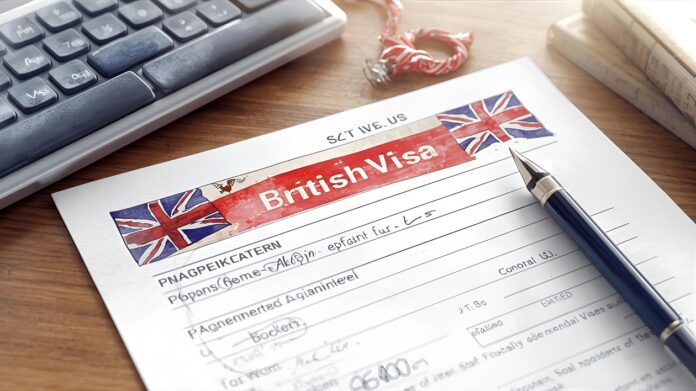The UK visa application is normally stressful. Most individuals waste a significant amount of time, money, and effort, only to receive a letter of refusal that disappoints them and leaves them unable to understand what happened, seemingly arbitrarily.
The fact is that the UK visa system is one that is overly tight, and a minor slip can cost you a grant. When you are going to make applications, it is better to learn about pitfalls, common reasons for refusing to exclude them and increase your chances of success. The most common reasons why a British visa application fails are listed below.
1. Incomplete or Incorrect Application
Among the most widespread, yet simple, causative factors of a refusal is an incomplete or flawed application. Leaving a field blank, adding an incorrect date, or selecting an incorrect visa category are things that as small as that can make the caseworker refuse to grant your request.
It is the duty of immigration officers not to rectify your errors, rather we must make a decision, using the-only information you present. It is to say that precision and soundness are vital.
2. Financial Documentation Problems
Another significant cause of British visa decline is related to finances. The UK government is keen to ensure that candidates are in a position to sustain themselves during their residence and in a manner that does not strain the state coffers. Your reports might become suspicious, red flags when your bank statements are unclear, inconsistent income that cannot be shown or unclear large deposits that you cannot horizontally explain.
As an illustration, when a movement sets into your account suddenly without offering a proper explanation then you may have suspicions that someone had borrowed the funds with the sole aim of satisfying the criteria.
3. Loose connections with Your Motherland
The UK Home Office also considers whether you are likely to return home after visiting it. Failure to show close connection to the country of residence may also lead to rejection of your application based on the possibility of an overstay on the visa. Ties may involve stable work, own property, studies or family responsibility.
For example, a person with a steady job, children in school, and a mortgage is more likely to be perceived as having something to return to, compared to individuals who have no home. If your affiliations are not evident, it would be necessary to provide as much supporting material as possible to demonstrate that you have commitments awaiting you at home after your visit.
4. Unclear Purpose of Visit
Failure to demonstrate clearly why you are visiting is another typical reason for rejection. When your intent is unclear, i.e. you simply write about tourism and do not provide any further details such as hotel reservations, a tour outcome or something about an event, the caseworker can suspect you. Equally, when you are paying a visit to relatives or friends and cannot bring your requesting letters or evidence of relationship to the unit, the application can be determined as weak.
5. Previous Immigration Issues or False Information
Dishonesty or a negative immigration history is perhaps the most significant reason for refusal. If you do not disclose one of the VMs of a previous visa refusal, overstay, or even a minor criminal record, the information can be readily obtained by the UK Home Office.
Once such information has been revealed, non-disclosure can result in rejection and may lead to mild breaches over the long term. On the same note, it is nearly guaranteed that you get a refusal if you provide false or misleading information on your application.
Final Thoughts
It is not pleasant to get visa refusals, and one can avoid them. Taking specific care of detail, ensuring that your financial documents are clear and understandable, noting any ties to your home country, and doing your best to fully justify your visit, will greatly reduce your chances of rejection. Simply telling the truth about your past is also crucial. The application process can appear daunting but preparation is the key to success. Whenever you feel uncertain, professional advice can be a lifesaver.






